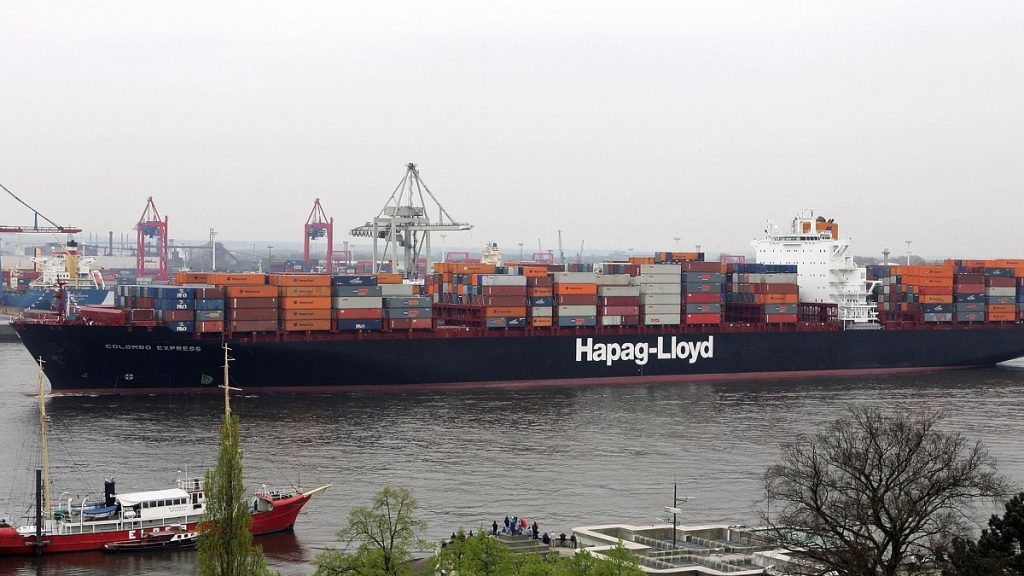The German interior ministry has reported that the amount of cocaine seized in major European ports has tripled over the past five years. This increase in drug trafficking has led to a rise in gang-related violence, including the deaths of thousands of European drug users from overdoses. In response to this growing issue, European ministers are meeting with South American counterparts in Hamburg, Germany to address the spiraling drug-related violence. The European Commission has described the surge in cocaine imports as one of the most serious security threats facing the continent, emphasizing the need for greater international cooperation against cartels. The European Ports Alliance was established in October by the Commission to combat rising organized crime, following record-breaking cocaine seizures in ports such as Rotterdam, the Netherlands and Algeciras, Spain.
The ministerial meeting in Hamburg includes representatives from Belgium, France, Germany, Italy, the Netherlands, and Spain, as well as from the EU police agency Europol and South America, a significant source of Europe’s cocaine imports. German interior minister Nancy Faeser emphasized the importance of making deep-sea ports safer to prevent them from being used as gateways for tons of cocaine. The meeting aims to strengthen cooperation and coordination between European countries and South America to combat drug trafficking and organized crime. Major European ports have seen a significant increase in the amount of cocaine seized, with Hamburg, one of Europe’s busiest ports, reaching nearly 44 tonnes of seized cocaine in 2023. Gang-related violence has escalated, with children among the victims of this violence.
Belgian interior minister Annelies Verlinden noted that some criminals have already started changing their behavior in response to tightened security measures, such as jettisoning illicit cargo from fishing boats before reaching the port of Antwerp. In an effort to combat drug trafficking in Costa Rica, which has become a major hub for drugs headed for Europe, the country has sought assistance from Brussels. Meanwhile, French police conducted a massive anti-drug sting in March, leading to the arrest of over 190 people. This crackdown on drug trafficking is part of the collective effort by European countries to address the increasing threat posed by drug-related violence and organized crime. These enforcement actions highlight the importance of international cooperation and collaboration in combatting the drug trade and ensuring the safety and security of European citizens.
As European nations grapple with the surge in drug-related violence and organized crime, the need for a unified approach to tackling these challenges has become increasingly apparent. By working together with South American counterparts and implementing enhanced security measures in major ports, European countries aim to disrupt drug trafficking networks and reduce the flow of illegal substances. The European Ports Alliance, established by the European Commission, plays a crucial role in coordinating efforts to combat organized crime and enhance border security. Through joint operations and information-sharing initiatives, law enforcement agencies can target drug traffickers and dismantle criminal networks involved in the illicit drug trade. With a multi-faceted approach that combines enforcement actions, international partnerships, and preventative measures, European countries seek to create safer communities and reduce the impact of drug-related violence on society.
In the face of escalating gang-related violence and the proliferation of drug trafficking, European authorities are stepping up their efforts to address the root causes of these issues. The increased seizures of cocaine in major European ports underscore the urgent need for action to disrupt the activities of criminal organizations and prevent the flow of illicit drugs. By focusing on enhancing security measures, improving intelligence sharing, and strengthening international cooperation, European countries are working together to combat drug-related violence and organized crime effectively. The ministerial meeting in Hamburg represents a significant step towards achieving greater coordination and collaboration in the fight against drug trafficking across borders. As European nations adopt a comprehensive approach to addressing the threats posed by drug-related violence, they demonstrate their commitment to safeguarding the well-being and safety of their citizens. Through continued efforts to disrupt drug trafficking networks and dismantle criminal enterprises, European countries strive to create a more secure and resilient society for all.


